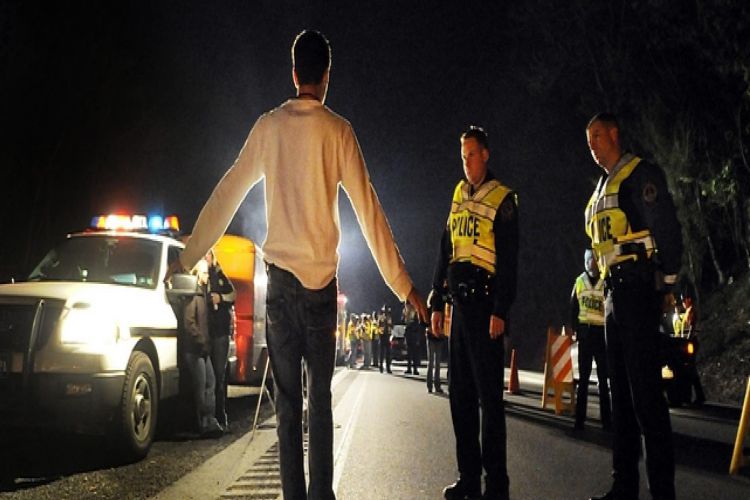
Driving while intoxicated (DWI) is a serious crime with severe legal and personal consequences. This article will delve into various aspects of such a scenario to educate and inform readers about the implications of a DWI conviction. From immediate repercussions to long-term legal implications, we will cover everything you might encounter when facing a DWI offense. Keep reading to gain a deeper understanding of this crucial subject matter.
The Immediate Aftermath of a DWI Arrest
When law enforcement suspects a motorist of intoxicated driving, a routine traffic stop can quickly escalate into a nightmarish scenario. Sobriety tests, breathalyzer tests, and potentially frightening moments of uncertainty dominate these incidents. The immediate aftermath of a DWI arrest is characterized by confusion, fear, and uncertainty—emotions exacerbated by the sobering reality that you are now part of the criminal justice system.
A DWI incident typically commences with a traffic stop. Legal authorities maintain strict vigilance concerning drunk driving and won’t hesitate to pull you over if they suspect intoxication. The interaction between the driver and law enforcement officer is critical as it can determine the direction of the encounter. It’s essential to cooperate while maintaining your rights as a citizen.
You might end up in a jail cell overnight or longer, depending on the details of the situation. This process may involve taking your fingerprints and mugshot and paying bail to secure your release. Once out, the real struggle begins: dealing with the criminal justice system, and for that, you may need the assistance of an expert San Marcos DWI attorney.
A professional DWI attorney serves as a crucial guide during this period, ensuring that individuals understand their legal rights and obligations fully. A San Marcos DWI attorney possesses in-depth knowledge of local laws, court procedures, and the intricacies of the criminal justice system. They can leverage this expertise to build a robust defense strategy tailored to individual circumstances. Whether it’s challenging the legality of the arrest, questioning the accuracy of field sobriety tests, or negotiating plea bargains, a capable attorney can navigate the legal process effectively and increase the chances of a favorable outcome.
The Legal Proceedings Following a DWI Arrest
A DWI arrest sets a series of court proceedings in motion. As a defendant, you will face several court appearances—typical proceedings include initial arraignment, pre-trial motions, plea bargain negotiations, and potential trials. All these stages demand intricate legal understanding, further underscoring the necessity for proper legal representation.
Bearing potential financial and personal life implications, dealing with the legal formalities of a DWI offense can be daunting. The strain of these proceedings can significantly impact your life, affecting your employment, personal relationships, and mental health.
Each case is unique in the eyes of the law. Depending on the severity of the incident and any prior convictions, you could face penalties such as fines, community service, mandatory participation in DWI education programs, and even imprisonment. The implementation of these penalties further depends on the judge’s discretion and how well your case is argued.
Navigating the Legal Maze
The complexity of law can be puzzling for the uninitiated. Since most legal statutes are prone to multiple interpretations, comprehending the implications of the laws related to DWI offenses is no walk in the park. An incorrect understanding can lead to dire consequences, such as losing your driving privileges or even imprisonment. Therefore, navigating the legal maze effectively requires sound legal counsel.
The ins and outs of handling a DWI case span well beyond understanding the alleged crime’s legal nuances. It encompasses aspects such as strategic litigation, plea bargaining, and formulating a compelling defense strategy. Becoming acquainted with DWI laws while grappling with an arrest’s emotional and psychological implications can be an overwhelming burden. A knowledgeable attorney becomes a legal guide and a pillar of emotional support.
It’s also important to remember that not all DWI arrests result in convictions. The prosecution bears the burden of proving beyond reasonable doubt that you were indeed driving while intoxicated. This is where an experienced attorney plays a critical role—by identifying weaknesses in the prosecution’s case and raising reasonable doubt.
The Impact on Personal Life
Being implicated in a DWI offense can have devastating effects on your personal life. The stigma attached to such an incident can strain relationships with family, friends, and acquaintances. Convictions can lead to exclusion from social groups and activities, profoundly impacting mental health and social life.
A DWI arrest, much less a conviction, can also adversely affect your professional life. Certain employers may view such an incident as a character failing, affecting prospects of gaining or maintaining employment. It can also adversely impact opportunities for advancement, bonuses, and other benefits.
Moreover, a DWI conviction may permeate aspects of life typically taken for granted. These changes can include increases in insurance premiums, restrictions on international travel, affect housing applications, and carrying an upsetting criminal record. Dealing with these implications can be an uphill battle, one best fought with expert legal guidance by your side.
Financial Consequences of a DWI
The monetary implications of a DWI are substantial. Even without considering penalties imposed by the court, defense costs alone can put a considerable dent in your financial standing. Hiring an attorney, paying for court-ordered programs, and other related expenses can quickly add up.
Apart from these direct costs, DWIs carry several other indirect costs. As earlier touched upon, auto insurance premiums can skyrocket following a DWI. Depending on your jurisdiction and insurance provider, this increase can be several-fold. Further, if you lose your driving privileges, the associated cost of alternative transport can be another financial burden to bear.
Lastly, if convicted, lost wages due to missed work for court proceedings or serving jail time add to the financial challenges faced. A conviction might limit future earning potential in certain professions. Undeniably, the financial consequences of a DWI can severely affect your life, underlining the importance of a robust defense to avoid these burdens potentially.
Long-Term Legal Implications
A DWI charge’s long-term legal implications manifest in a fairly broad spectrum. A DWI conviction goes on your permanent criminal record. Depending on the jurisdiction, it may remain on your record for a decade or longer, even a lifetime in some cases. A criminal record can affect you in multifarious ways, notably when applying for jobs and academic programs or when facing background checks.
If you re-offend, previous DWI convictions amplify the severity of penalties faced. Courts take a particularly dim view of repeat offenders, and the sentencing reflects this. Repeat offenses may result in elevated charges like felony DWI, carrying significantly more severe consequences.
A complex web of inter-state regulations can mean that a DWI conviction in one state affects your driving privileges in others. Subsequent brushes with law enforcement, even for minor offenses, can become infinitely thornier with a DWI conviction trailing behind your record.
Prevention Is the Best Cure
A DWI incident is a significant event with severe repercussions that ripple through various facets of your life. The regrettable reality is that thousands of individuals are thrust into this tumultuous path yearly. However, it’s essential to remember that one poor decision does not define your life. The help of capable attorneys is invaluable in navigating the aftermath effectively.
While the expertise of legal professionals can help mitigate the damage post-factum, prevention remains the best cure for DWI incidents. Stay aware, stay safe, and choose not to drive when intoxicated to protect your and others’ lives.




